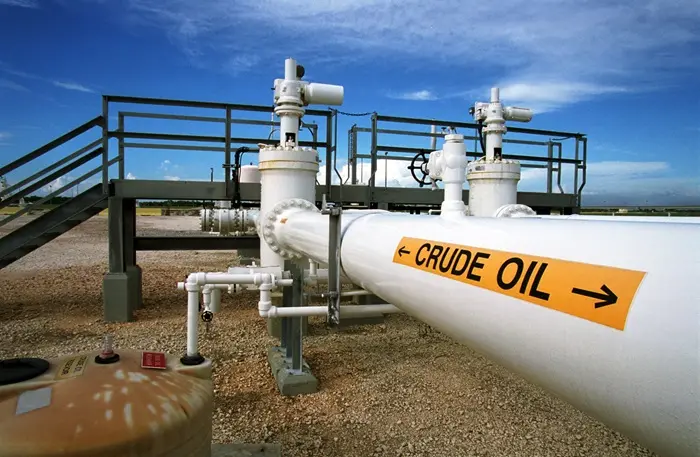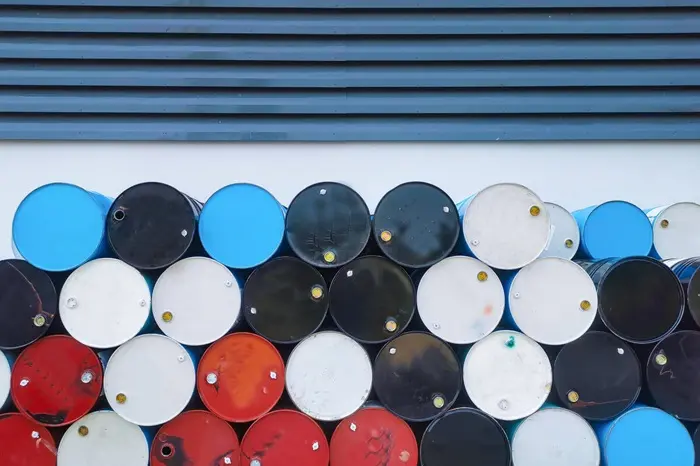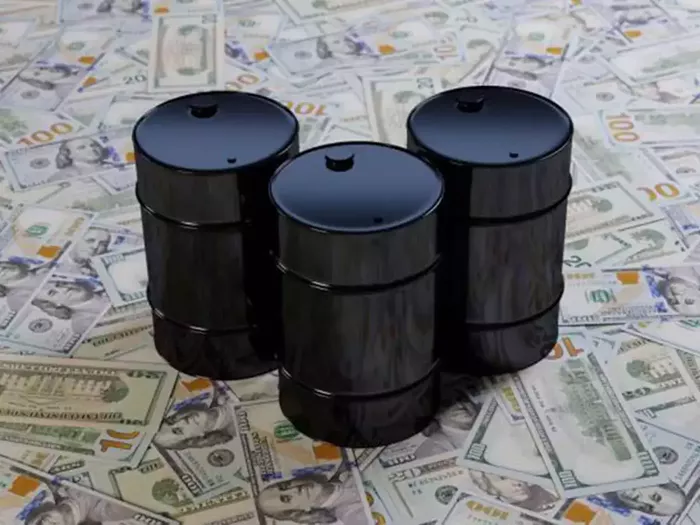Crude oil futures are a type of financial contract where two parties agree to buy or sell a specific amount of crude oil at a predetermined price on a future date. These contracts are primarily traded on commodities exchanges such as the New York Mercantile Exchange (NYMEX) and the Intercontinental Exchange (ICE). Crude oil futures play a vital role in the global oil markets, enabling both physical oil traders and financial investors to hedge risks or speculate on price movements.
In this article, we’ll explore the fundamentals of crude oil futures, their significance, and how they impact the global economy. Understanding these contracts is essential for both traders and businesses reliant on oil, as well as investors looking to diversify their portfolios.
What Are Futures Contracts?
At the core of crude oil futures is the futures contract itself. A futures contract is a legally binding agreement to buy or sell an asset at a specific price on a particular date in the future. While futures contracts can be based on various commodities, crude oil futures focus on one of the world’s most crucial commodities—crude oil.
Key Characteristics of Futures Contracts
Futures contracts have several unique features:
Standardization: Crude oil futures are standardized contracts, meaning the quantity of oil, quality, and delivery location are pre-defined by the exchange. For example, a standard NYMEX WTI crude oil futures contract represents 1,000 barrels of oil.
Expiration Dates: Every futures contract has a set expiration date, which determines when the oil must be delivered or settled.
Settlement: Settlement can occur either through the physical delivery of oil or by cash settlement, where the difference between the contract price and the market price is paid in cash.
Why Trade Crude Oil Futures?
Crude oil futures allow market participants to engage in the oil market without having to physically handle the commodity. There are several key reasons why businesses, financial institutions, and investors trade crude oil futures:
Hedging: Companies that rely on crude oil—such as airlines or oil refiners—use futures to hedge against price fluctuations. By locking in future prices, they can protect themselves from unexpected cost increases.
Speculation: Traders and investors speculate on crude oil prices by buying or selling futures contracts. If they expect prices to rise, they can buy futures contracts and sell them later at a higher price for profit. If they predict a price drop, they can sell contracts and buy them back at a lower price.
Arbitrage: Some traders engage in arbitrage by taking advantage of price discrepancies between crude oil futures and other financial instruments, such as spot oil prices or other derivatives.
Types of Crude Oil Futures
There are several types of crude oil futures contracts, depending on the type of crude oil being traded. The two most commonly traded contracts are West Texas Intermediate (WTI) and Brent crude oil futures.
WTI Crude Oil Futures
West Texas Intermediate (WTI) is a high-quality, light, sweet crude oil that is primarily produced in the United States. WTI crude oil futures are traded on the NYMEX and are used as a global benchmark for oil prices. These futures are typically settled with the physical delivery of oil at Cushing, Oklahoma, which is a major hub for U.S. oil storage and transportation.
Brent Crude Oil Futures
Brent crude oil is sourced from the North Sea and is considered another major benchmark for global oil prices. Brent crude oil futures are traded on the Intercontinental Exchange (ICE) and are widely used by traders around the world. Brent futures are typically settled in cash rather than physical delivery, making them popular with financial investors.
The Role of Exchanges
Crude oil futures are traded on commodities exchanges, which provide the infrastructure and regulation needed for the contracts to be traded smoothly. The two main exchanges where crude oil futures are traded are NYMEX and ICE.
NYMEX
The New York Mercantile Exchange (NYMEX) is the world’s largest commodity futures exchange and is part of the CME Group. NYMEX handles WTI crude oil futures and offers a variety of oil-related products for traders and hedgers.
ICE
The Intercontinental Exchange (ICE) is a global exchange that trades energy, agricultural commodities, and financial derivatives. ICE is the primary platform for Brent crude oil futures, and it also offers other energy products.
How Crude Oil Futures Impact Oil Prices
Crude oil futures directly influence the global price of crude oil. The futures market is a reflection of market participants’ expectations about supply and demand, geopolitical risks, and economic conditions. Several factors contribute to how crude oil futures affect prices:
Supply and Demand
The primary driver of crude oil prices is the balance between supply and demand. When demand for oil exceeds supply, prices rise. Conversely, when supply exceeds demand, prices fall. Futures contracts allow traders to react to changes in supply and demand by locking in future prices.
Geopolitical Events
Geopolitical events, such as conflicts in oil-producing regions or sanctions on major oil-exporting countries, can lead to uncertainty in the oil market. Traders may use futures contracts to hedge against the risks of oil supply disruptions, which can result in volatile price movements.
Economic Data
Economic indicators, such as GDP growth, unemployment rates, and industrial production, can impact crude oil prices. Strong economic growth often leads to higher oil demand, pushing prices up. Conversely, economic slowdowns can decrease demand and put downward pressure on prices.
Market Sentiment
Market sentiment plays a significant role in the pricing of crude oil futures. If traders expect future demand to rise due to positive economic indicators or geopolitical stability, prices may increase. On the other hand, negative sentiment about future demand can lead to lower prices.
See Also: Why Is Crude Oil Considered a Non-Renewable Resource?
Crude Oil Futures and Risk Management
Crude oil futures are essential tools for risk management, particularly for businesses and financial institutions that are exposed to oil price volatility. By locking in future prices, these entities can stabilize their costs and protect themselves from price swings.
Hedging for Oil Producers
Oil producers, such as exploration and production companies, often use futures contracts to hedge against price declines. By selling futures contracts, producers can lock in a future selling price for their oil, ensuring that they remain profitable even if market prices fall.
Hedging for Consumers
Companies that consume large amounts of oil, such as airlines, trucking firms, and manufacturers, also use crude oil futures for hedging purposes. These companies can buy futures contracts to lock in future oil prices, protecting themselves from potential price increases that would raise their operational costs.
Crude Oil Futures as an Investment
Crude oil futures are not just for hedging; they are also attractive investment vehicles for traders and investors seeking to profit from oil price movements. There are several ways investors can participate in the crude oil futures market:
Direct Investment in Futures Contracts
Some investors trade crude oil futures directly, buying and selling contracts based on their expectations of future oil prices. However, trading futures requires a deep understanding of the market, and it carries significant risks, including leverage and margin requirements.
Oil Exchange-Traded Funds (ETFs)
For investors who want exposure to crude oil but prefer not to trade futures directly, oil ETFs provide a more accessible option. Oil ETFs track the performance of crude oil futures contracts, offering investors a way to profit from oil price movements without the complexities of futures trading.
Oil-Related Stocks
Investors can also gain exposure to crude oil prices by investing in stocks of companies involved in the oil industry, such as oil producers, refiners, and pipeline operators. While these stocks do not move in perfect correlation with oil prices, they tend to benefit from rising oil prices and suffer when prices fall.
The Risks of Trading Crude Oil Futures
While crude oil futures offer significant opportunities for profit, they also carry risks. It’s important for traders and investors to understand the potential downsides before entering the market.
Price Volatility
Crude oil is one of the most volatile commodities, with prices subject to large swings due to geopolitical events, economic data, and market sentiment. This volatility can lead to significant gains but also substantial losses for traders.
Leverage
Futures trading involves leverage, meaning traders can control large positions with a relatively small amount of capital. While leverage can amplify profits, it also magnifies losses. Traders need to be cautious and use risk management strategies to avoid large losses.
Margin Calls
When trading futures contracts, traders must maintain a margin account with a minimum balance. If the market moves against their position, they may receive a margin call, requiring them to deposit additional funds. Failure to meet a margin call can result in the forced liquidation of their position.
Conclusion
Crude oil futures are a powerful financial instrument used by market participants to hedge risks, speculate on price movements, and gain exposure to one of the world’s most important commodities. While trading crude oil futures offers the potential for significant profits, it also carries risks, including price volatility and leverage.
Whether you’re a business looking to stabilize costs or an investor seeking to diversify, understanding how crude oil futures work is essential. By familiarizing yourself with the basics of futures contracts, market dynamics, and risk management strategies, you can make informed decisions in the crude oil futures market.
Related topics:































